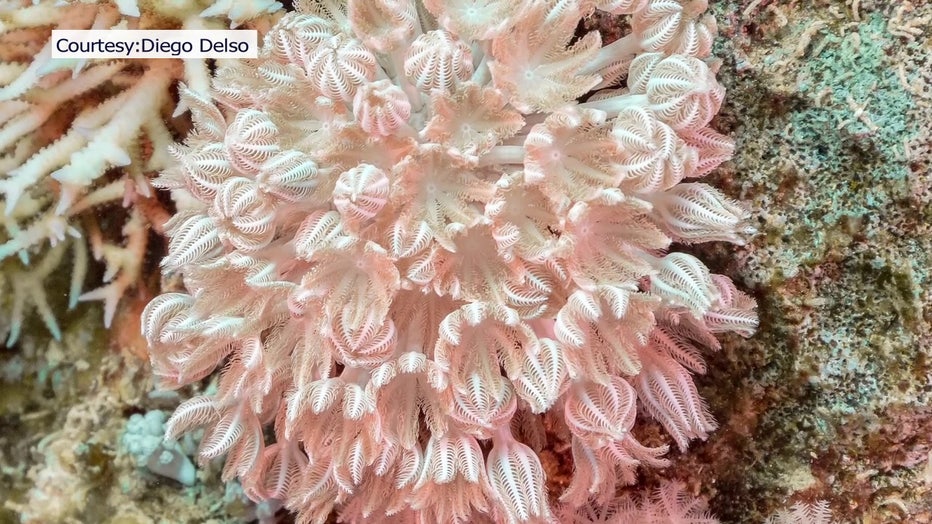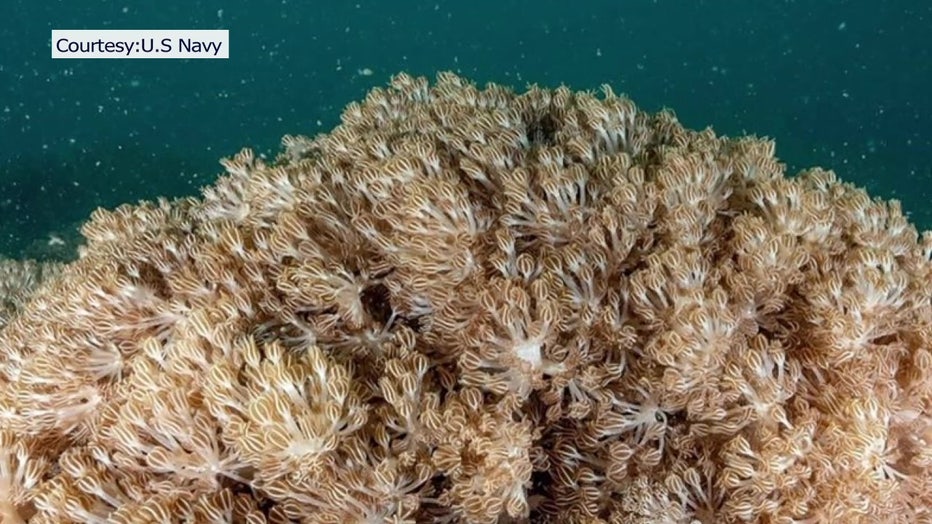Researchers ask for underwater help in reporting invasive soft coral species
Invasive coral species a growing concern
Scientists are asking divers and snorkelers to keep an eye out for highly invasive species that could further damage Florida's already fragile coral reefs.
MONROE COUNTY, Fla. - They’re pink to whitish in color.
"They have about eight long tentacles. They will be on each of the ends of the polyps, which is the head of the coral," said Paul Evans the Research Coordinator for the Invasion Science Research Institute at the University of Florida.
They’re also eye-catching.
"The main thing you really notice is they do this kind of dance or pulse like motion which is why they are called pulse corals. How they tend to feed is moving open and closing throughout the ocean current," said Evans.
They’re also aggressive. Pulse corals are invasive and part of the Xeniidae family. They are native to the Indo-Pacific and Red seas, but several species have been discovered growing outside their native range.

Once pulse corals invade, they can snuff out important habitats including seagrass beds, mangrove systems and native coral reefs.
"We probably have our native corals fighting every battle they can, and now we are adding this aggressive soft pulse corals that are likely very easily going to thrive if left unchecked," said Evans.
The U.S Geological Survey has partnered with the University of Florida and other Federal and State agencies. They’re asking anyone who believes they’ve spotted pulse coral in Florida waters, to take a photo and report it.
READ: Sarasota Bay boaters urged to keep their distance from new dolphin calves
Soft corals are also used in aquariums and can quickly take over.
Some of the suspected cases of the invasive coral outbreaks, maybe from intentional releases.
"The hope is if you see stuff tell people, tell experts. Let some of this information get out there. There is unfortunately a lot, a lot, a lot to still learn," said Evans.

Pulse Corals have been located in Hawaii, Venezuela and Puerto Rico. The farthest north the corals have been found is Cuba.
Pulse corals reproduce rapidly.
Evans said it’s vital to document if they’ve made their way to the Florida Reef track.
"A little part of the polyp can be there and they’ll still procreate. That can get stuck to boats, ships, fishing gear. Just any type of that large transportation system that happens in the Caribbean system," he said.
To report any sightings of pulse coral, click here.
For more information, click here.
SIGN UP: Click here to sign up for the FOX 13 daily newsletter
WATCH FOX 13 NEWS

